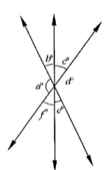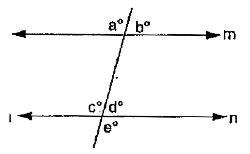There are four light-weight-rod sample A, B, C, D separately suspended by threads. A bar magnet is slowly brought near each sample and the following observations are noted
(i) A is feebly repelled
(ii) B is feebly attracted
(iii) C is strongly attracted
(iv) D remains unaffected
Which one of the following is true?
A is of a non-magnetic material
B is of a paramagnetic material
C is of a diamagnetic material
D is of a ferromagnetic material
The correct Answer is:B
diamagnetic material is repelled, para magnetic material is feebly attracted and ferromagnetic material is strongly attracted in the magnetic field.
Topper's Solved these Questions
- MAGNETISM AND MATTERBOOK - NARAYNACHAPTER - MAGNETISM AND MATTEREXERCISE - EXERCISE - 4 (SINGLE ANSWER TYPE QUESTION)
17 Videos
- MAGNETISM AND MATTERBOOK - NARAYNACHAPTER - MAGNETISM AND MATTEREXERCISE - EXERCISE - 2 (H.W)
24 Videos
- MAGNETISMBOOK - NARAYNACHAPTER - MAGNETISMEXERCISE - LEVEL-II (H.W)
24 Videos
- MOVING CHARGES AND MAGNETISMBOOK - NARAYNACHAPTER - MOVING CHARGES AND MAGNETISMEXERCISE - EXERCISE - 4
20 Videos
Similar Questions
In Figure, which of the following statements must be true? (i) a+b=d+c (ii) a+c+e=1800 (iii) b+f=c+e (a) (i) only (b) (ii) only (c) (iii) only (d) (ii) and (iii) only

View SolutionSamples of four metals A, B, C and D were taken and added to the following solution one by one. The results obtained have been tabulated as follows.
Use the Table above to answer the following questions about metals A, B, C and D.
(i) Which is the most reactive metal?
(ii) What would you observe if B is added to a solution of Copper (II) sulphate?
(iii) Arrange the metals A, B, C and D in the order of decreasing reactivity.
View Solution
Knowledge Check
There are four light-weight-rod sample A, B, C, D separately suspended by threads. A bar magnet is slowly brought near each sample and the following observations are noted
(i) A is feebly repelled
(ii) B is feebly attracted
(iii) C is strongly attracted
(iv) D remains unaffected
Which one of the following is true?AA is a non-magnetic materialBB is of a paramagnetic materialCC is of a diamagnetic materialDD is of a ferromagneitc materialThere are four light-weight-rod sample A, B, C, D separately suspended by threads. A bar magnet is slowly brought near each sample and the following observations are noted
(i) A is feebly repelled
(ii) B is feebly attracted
(iii) C is strongly attracted
(iv) D remains unaffected
Which one of the following is true?AB is of a paramagnetic materialBC is a diamagnetic materialCD is of a ferromagnetic materialDA is of a non magnetic materialIf four positive numbers a, b, c, d are in H.P. then which one of the following is true.
Aan+cn>2bnBa+d>b+cC(a/b)>(c/d)Dbn+dn>2cn
In the given figure , lines m and n are not parallel and will intersect at some point to the right of the page Which of the following statements is / are true ?
(I)c=e (II)b>d (III)a=c

View SolutionPlot each of the following points on a graph paper: (i) A(5, 2) (ii) B(-2, 4) (iii) C(-4, -6) (iv) D(4, -3)
View SolutionFive Styrofoam balls are suspended from insulating threads. Several experiments are performed on the balls and the following observations are made:
(i) Ball A repels C and attracts B.
(ii) Ball D attracts B and has no effect on E.
(iii) A negatively charged rod attracts both A and E.
An electrically neutral Styrofoam ball gets attracted if placed nearby a charged body due to induced charge. What are the charges, if any, on each ball A,B,C,D, and E?
View SolutionRead the information given below and answer the questions that follow :
(i) In a family of six persons A, B, C, D, E and F, there are two married couples.
(ii) D is grandmother of A and mother of B.
(iii) C is wife of B and mother of F.
(iv) F is the grand daughter of E.
Which of the following is true ?
View Solution(i)A+B means 'A is the father of B'
(ii)A-B means 'Ais the wife of B'
(iii)A×B means 'A is the brother of B'
(iv)A÷B means 'A is the daughter of B'.If A-C+B ,which of the following statements is true?
View Solution

